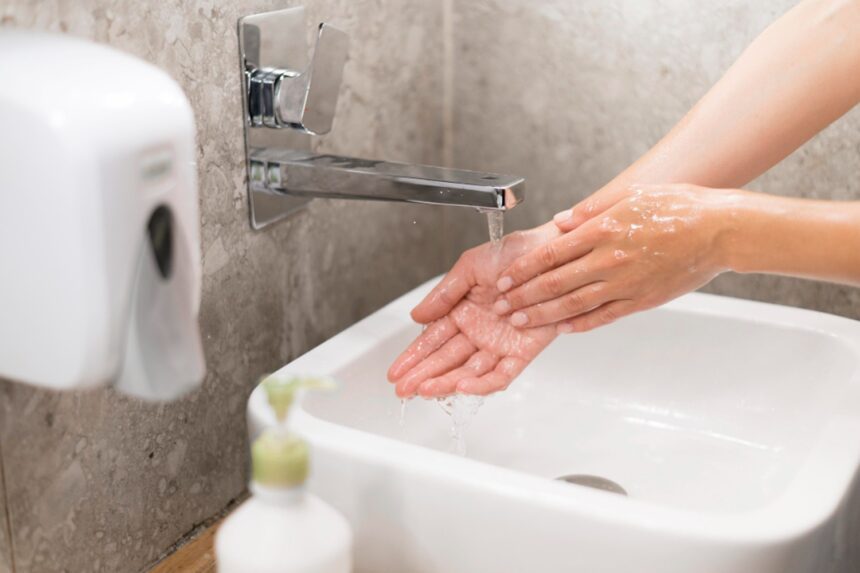Bacteria and viruses thrive in your surroundings, and these microbes can harm your health. By adopting conscious hacks and modifying daily hygiene routines, you can significantly improve your family’s health and reduce the spread of these harmful microorganisms.
What exactly is the meaning of personal hygiene?
Keeping your body clean and practicing physical hygiene are the cornerstones of personal hygiene, which means taking care of your health. Additionally, since they greatly influence one another, there are advantages for mental health as well.
What does poor personal hygiene mean?
Picking your nose or ear with your finger, as well as frequent ones like not brushing your teeth correctly, are all examples of poor personal hygiene. Along with this, there are things that we perform unintentionally because we are lazy or do not see the benefit in them, such as not having a shower every day or not believing in regular washing hands.
Basic hygiene issues are cold, fever, food poisoning, skin infections, cough, typhoid, depression, hepatitis, urinary infections, lice, tooth decay, etc.
What are some examples of appropriate personal hygiene practices?
Regular showers, maintaining dental hygiene, regularly washing hands, genital cleansing, and keeping clothes and surroundings dry and clean are all part of good personal hygiene. These practices should be implemented at home and at work to keep the bodily systems from collapsing under the weight of germs, hence guaranteeing total health.
Personal Hygiene at Home
1. Take a shower regularly
Make showering a habit by not waiting until you feel dried perspiration in your body. You can take a shower as per your schedule. Rinse your body completely, especially the genitals and underarms, which create more sweat and are more vulnerable to fungus activity.
2. Consistently wash your hands
Hands are essential for physical actions like picking keys, scrolling through phones, and caring for pets. Hand washing with soap or sanitiser regularly is essential for maintaining cleanliness and preventing illnesses.
3. Maintain good oral hygiene habits
Maintaining dental and gum health is critical for avoiding decay and neurological problems. Brushing with fluoride toothpaste and flossing after meals removes plaque and debris and helps prevent foul breath. Consult your dentist if you are experiencing sensations of pain.
4. Cut your nails and shampoo your hair
Dirt and grease are stored in your nails and hair. None, not to mention the possibility of microorganisms becoming trapped and spreading. Because you prepare or eat your food with your hands, poor nail care might result in serious food poisoning. Wash your hair at least twice a week and trim your nails to be healthy.
5. Wash your nose and ears
Every time you step outside, you are likely to inhale some pollutants, with the majority of the particles lodged in your nostril hair. When you get home, clean your nose and ears with warm water. Particularly if you have any allergies.
Personal Hygiene Practices for Children
Children are more prone to hygiene difficulties than adults, making it critical to stress the value of excellent personal hygiene and self-awareness in them. Parents must follow the practice of personal hygiene, such as brushing their teeth, taking a shower, etc. Children will be more inclined to take care of their hygiene concerns if ground rules are established early on and followed. This will assist youngsters in developing greater self-awareness and hygienic behaviours.
Personal hygiene in the workplace
Workplaces can be breeding grounds for parasites and pathogens, raising the danger of contamination. To avoid this, install hand sanitiser, use recycled containers, and clean specific areas for lunch and thereafter. Raising knowledge about the benefits of personal hygiene and keeping a clean workplace may also help to enhance the working environment. Encourage sick days, even if they are only for a cold, to help prevent the spread of the flu. Encourage sick leave to help reduce the outbreak of the flu in the workplace.
Conclusion
Set reminders, signs, or signals for certain actions to promote personal hygiene and assist children in developing healthier habits. You might become accustomed to these practices over time. If you want medical attention, consider going to Doctors’ Hub Clinic Deira for the top service.


Leave a Reply